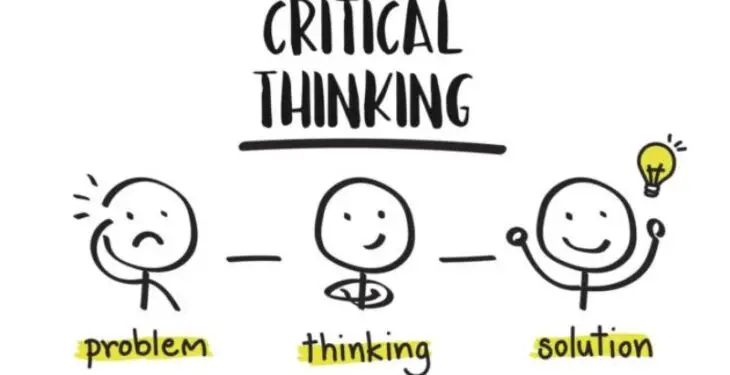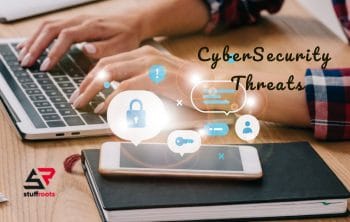In today’s digital age, where information is just a click away, we are faced with a new challenge: the rise of misinformation. With the advent of social media platforms and the ease of sharing information, it has become increasingly difficult to discern fact from fiction. Misinformation spreads like wildfire, causing confusion and leading people to make uninformed decisions. This has serious implications for society as a whole, and it is crucial that we develop critical thinking skills to navigate through this era of misinformation.
Misinformation can take various forms, from fake news articles to viral rumors and conspiracy theories. It often plays on our emotions, exploiting our fears and biases. With the abundance of information available at our fingertips, it can be overwhelming to sift through the noise and find reliable sources. This is why critical thinking skills are more important than ever. By equipping ourselves with these skills, we can become better consumers of information and make informed decisions based on evidence and logic.
Understanding the Impact of Misinformation on Society
The impact of misinformation on society cannot be underestimated. It has the power to influence public opinion, shape political narratives, and even incite violence. In recent years, we have witnessed how misinformation has played a role in elections, fueling polarization and division among the masses. It erodes trust in institutions and undermines the foundation of democracy.
Furthermore, misinformation can have serious consequences for individuals. It can affect our health decisions, financial choices, and even our personal relationships. Believing false information can lead to harmful actions or missed opportunities. It is essential that we recognize the far-reaching impact of misinformation and take proactive steps to combat it.
What Are Critical Thinking Skills?
Critical thinking skills are the ability to objectively analyze and evaluate information, arguments, and claims. It involves questioning assumptions, considering multiple perspectives, and using evidence-based reasoning to arrive at logical conclusions. Critical thinkers are able to recognize biases, spot logical fallacies, and separate fact from opinion.
These skills go beyond simply consuming information. They require active engagement with the material, a willingness to challenge one’s own beliefs, and a curiosity to seek out diverse viewpoints. Critical thinking is not about being skeptical of everything, but rather about being discerning and having a healthy level of skepticism. It is about cultivating intellectual humility and being open to changing our minds when presented with new evidence.
The Importance of Critical Thinking Skills
In the era of misinformation, critical thinking skills have become a necessity. They empower individuals to navigate through the vast sea of information and make well-informed decisions. Without these skills, we are vulnerable to manipulation and susceptible to falling prey to false narratives.
Critical thinking skills also enable us to engage in constructive dialogue and debate. They foster a culture of intellectual curiosity and respect for evidence. In an age where echo chambers and filter bubbles are prevalent, being able to critically evaluate different perspectives is crucial for a healthy democracy and a well-functioning society.
The Role of Media Literacy in Combating Misinformation
Media literacy plays a vital role in combating misinformation. It involves the ability to critically analyze media messages, understand the techniques used to manipulate information, and distinguish between reliable and unreliable sources. By developing media literacy skills, we can become more discerning consumers of information and reduce the spread of misinformation.
Media literacy education should be integrated into school curricula to ensure that future generations are equipped with the necessary skills to navigate the digital landscape. It should focus on teaching students how to evaluate the credibility of sources, identify bias in media messages, and fact-check information. By empowering students with media literacy, we can create a generation of critical thinkers who are less susceptible to misinformation.
The Role of Schools in Teaching Critical Thinking
Schools play a crucial role in teaching critical thinking skills. They provide the foundation for developing these skills and nurturing intellectual curiosity. It is essential that schools prioritize critical thinking education and incorporate it into their curriculum.
By integrating critical thinking into various subjects, such as English, science, and social studies, students can learn to apply these skills in real-world contexts. Teachers can facilitate critical thinking through interactive discussions, problem-solving activities, and assignments that require students to analyze and evaluate information.
Furthermore, schools can foster a culture of inquiry and encourage students to ask questions, challenge assumptions, and seek evidence. By creating an environment that values critical thinking, schools can empower students to become active participants in their own learning and equip them with the skills necessary to navigate the era of misinformation.
The Role of Parents in Teaching Critical Thinking
Parents also have a vital role to play in teaching critical thinking skills to their children. From an early age, parents can encourage curiosity, promote independent thinking, and foster a love for learning. By engaging in open discussions, encouraging questions, and providing opportunities for exploration, parents can lay the foundation for critical thinking.
Parents can also model critical thinking skills in their own lives. By demonstrating how to analyze information, question assumptions, and seek out diverse perspectives, they can instill these skills in their children. Furthermore, parents can actively engage with their children in media consumption, discussing the credibility of sources and challenging false narratives.
The Role of Parental Control Apps in Developing Critical Thinking Skills
In the digital age, parental control apps can be a useful tool for teaching critical thinking skills. These apps allow parents to monitor and control their children’s online activities, ensuring a safe and responsible digital experience. However, it is important to use these apps in a way that promotes critical thinking rather than stifling independence.
Parental control apps can be used as a starting point for discussions about online safety, privacy, and responsible information consumption. By setting boundaries and discussing the reasons behind these restrictions, parents can engage their children in critical-thinking conversations. This can help children develop a healthy scepticism towards online information and become more discerning consumers of digital content.
Moreover, some parental control apps come with features to set up parental controls on a variety of devices. For example, here is how to set up parental controls on computers powered by Windows operating systems with one of the best apps on the market: Windows Parental Controls
Conclusion: Navigating the Era of Misinformation
In this era of misinformation, developing critical thinking skills is not just a luxury, but a necessity. By equipping ourselves and future generations with these skills, we can navigate through the vast sea of information, make informed decisions, and combat the spread of misinformation. Schools, parents, and society as a whole have a responsibility to prioritize critical thinking education and create an environment that values evidence-based reasoning.
So, let’s embrace the challenge of navigating the era of misinformation by developing our critical thinking skills. Let’s question assumptions, seek out diverse perspectives, and critically evaluate information. Together, we can build a society that is resilient to misinformation and equipped to make well-informed decisions.
Stay informed, think critically, and navigate the era of misinformation with confidence!






